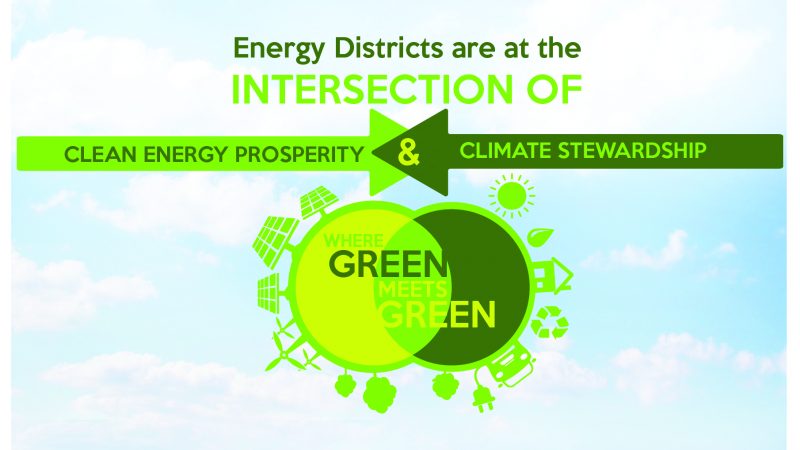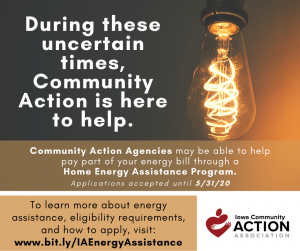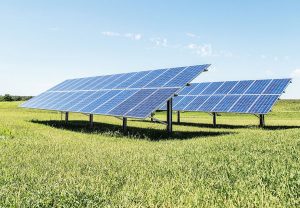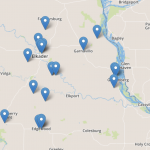Advocacy Matters, Especially During the Pandemic
Local energy districts create stronger communities by working to reduce everyone’s energy use, especially the highly energy-burdened. We all need energy to survive and thrive. When we wisely use or conserve energy, we reduce our energy burden and we have more for our pocketbook, more to invest in our communities, and at the same time reduce local carbon emissions.
 This means stronger communities!
This means stronger communities!
Energy districts are at the intersection of clean energy prosperity and climate stewardship… But in the middle of a 100 year pandemic it is hard to be physically present at the intersection!
Over the last many weeks, the Energy Districts have had to re-work our strategy for creating impact, and have had to find ways to stay relevant while continuing meaningful work. We concentrated on getting our voices heard by our elected officials, listening and learning to our neighbor’s about our rights as energy rate payers and their energy burden experiences, and observing how the pandemic affects the local clean energy job sector. We are also gearing up for new ways to carry out our initiatives during this time of social distancing. Read about the new FREE LED Delivery program.
Last week, CCED Program Manager Joleen Jansen spent a little time with the Union of Concerned Scientists on the virtual lobby day with Rep. Finkenauer’s staff. Due to COVID-19, Iowa has lost over 5,000 clean energy jobs in March and April alone, as part of the nearly 600,000 jobs that were lost during these same two months nation-wide. In light of this, it is even more important to extend tax credits and provide other relief to make sure that workers are protected and facilitate the return of these essential jobs. Specifically, we hope Rep. Finkenauer will:
- Tell Speaker Pelosi how important it is for Iowa to extend the production tax credit for wind (PTC) and investment tax credit (ITC) for solar. Also, to expand the ITC to energy storage and investments in the bulk electricity transmission system, to create thousands of jobs.
- Reauthorize the Dept Of Energy’s (DOE) Energy Efficiency and Conservation Block Grant Program (EECBG) to support local energy efficiency and conservation projects in local communities across the country, spurring job growth and saving consumers money.
- Ramp up funding for DOE’s Weatherization Assistance Program (WAP) to drive down household energy bills, create local jobs, and improve the health and safety for our most economically vulnerable people.
- Increase funding for DOE’s State Energy Program (SEP) to provide technical assistance for state-led and locally administered clean energy and energy efficiency projects.
- Help communities be better prepared for the inevitable collision of COVID-19 and extreme weather by ramping up funding for FEMA’s Hazard Mitigation Assistance Grants, including the Building Resilient Infrastructure and Communities Program (BRIC) and the Flood Mitigation Assistance Grant Program.
 Also, in recent weeks, the CCED has signed on to several national sign-on letters in support of continued national moratorium on utility shut offs. Importantly, these no-disconnect policies will not stop the utility debt from accruing. We strongly advocate for the energy burdened ratepayers to participate in the Low Income Household Energy Assistance Program.
Also, in recent weeks, the CCED has signed on to several national sign-on letters in support of continued national moratorium on utility shut offs. Importantly, these no-disconnect policies will not stop the utility debt from accruing. We strongly advocate for the energy burdened ratepayers to participate in the Low Income Household Energy Assistance Program.
 We have also had recent conversations with state Representative Anne Osmundson. Rep. Osmundson sits on the Iowa House Ways and Means Committee. The pandemic has deeply affected Iowa’s growing solar industry, which is bad for the local economy! Local solar ownership is key to local energy prosperity. Because of means such as the economic downturn, supply chain disruption, and social distancing safety measures limiting lead generations– solar construction is slowing. This leads to job loss within the industry as well as perspective local solar owners waiting to take advantage of a key measure to reduce the cost of energy.
We have also had recent conversations with state Representative Anne Osmundson. Rep. Osmundson sits on the Iowa House Ways and Means Committee. The pandemic has deeply affected Iowa’s growing solar industry, which is bad for the local economy! Local solar ownership is key to local energy prosperity. Because of means such as the economic downturn, supply chain disruption, and social distancing safety measures limiting lead generations– solar construction is slowing. This leads to job loss within the industry as well as perspective local solar owners waiting to take advantage of a key measure to reduce the cost of energy.
When the legislature resumes on June 3rd, we are asking Rep. Osmundson to advocate for increasing the Iowa Solar Tax Credit cap. This will release the back log of projects on the Iowa Solar Tax Credit waiting list and get these projects slated for 2020. We are also asking for her to advocate for the decoupling of the Iowa Solar Tax Credit from the currently diminishing Federal Investment Tax Credit and maintaining Iowa’s credit at 15%. Iowa’s solar tax stimulus program should not be married to the Federal program and at the mercy of D.C. policy makers These efforts will buoy our local solar industry and accelerate our local clean energy transition!

 Next Post
Next Post